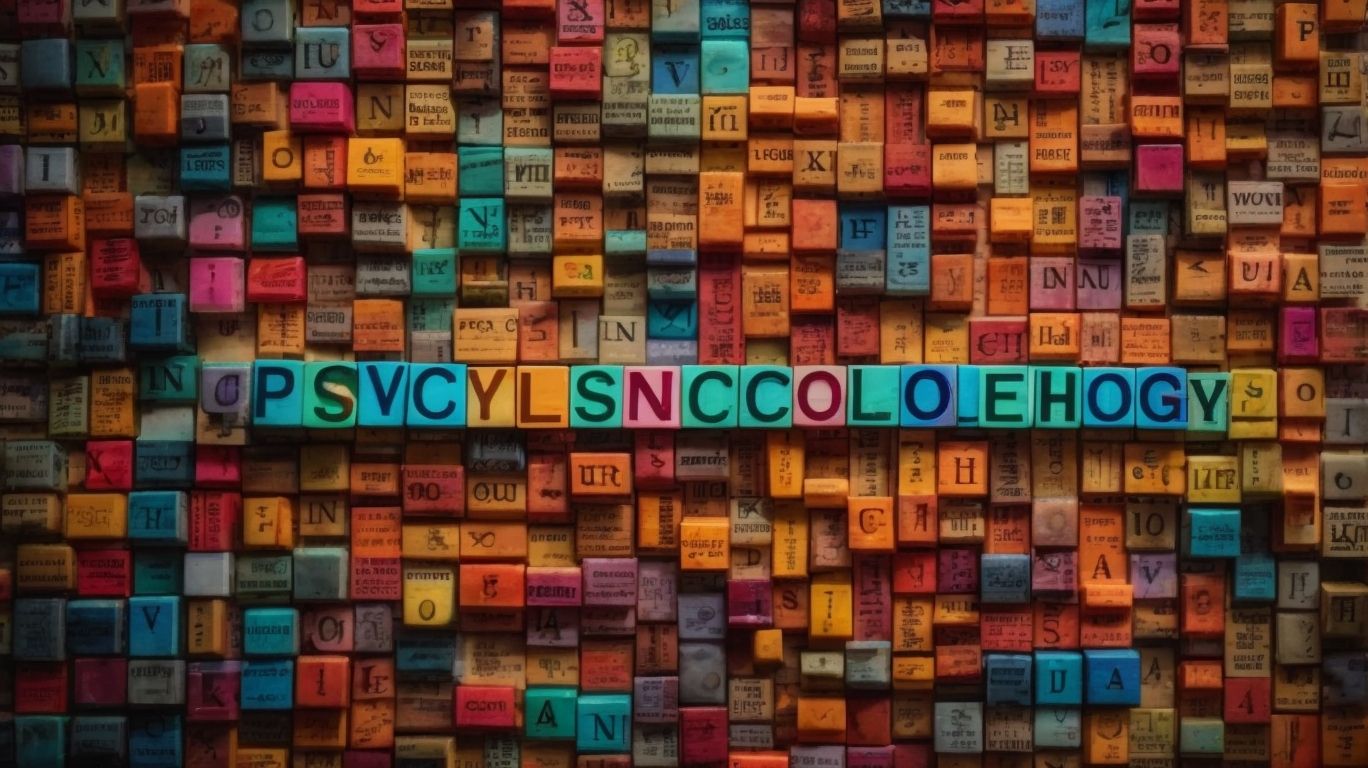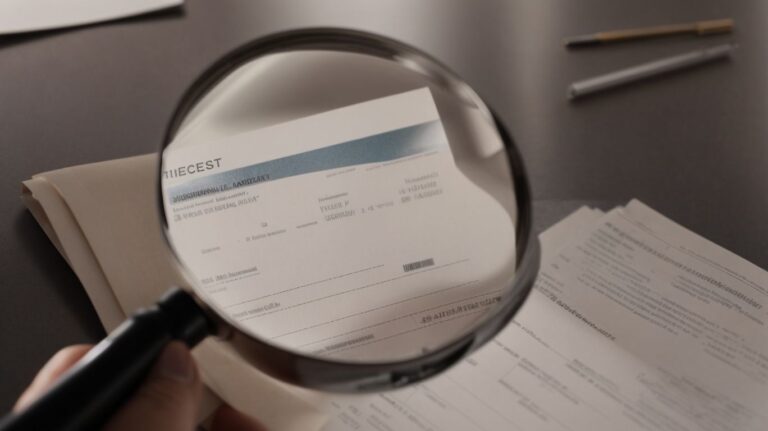Have you ever tried your hand at a psychology word puzzle? These brain-teasing games have been gaining popularity for their unique way of challenging our knowledge of psychology terms.
In this article, we will explore the fascinating world of psychology word puzzles, from how to solve them to the most common types you may encounter. Whether you’re a beginner or a seasoned puzzler, we’ve got you covered with tips and tricks to help you crack those tricky clues.
So, grab a pencil and get ready to dive into the world of psychology word puzzles!
Contents
- 1 What is a Psychology Word Puzzle?
- 2 Why Are Psychology Word Puzzles Popular?
- 3 How Do You Solve a Psychology Word Puzzle?
- 4 What Are the Most Common Types of Psychology Word Puzzles?
- 5 What Are Some Tips for Solving Psychology Word Puzzles?
- 6 What Are the Answers and Explanations for Common Psychology Word Puzzles?
- 7 Frequently Asked Questions
- 7.1 How can I solve the Psychology Word Puzzle?
- 7.2 Why is it important to understand the answers and explanations in the Psychology Word Puzzle?
- 7.3 Is there a specific strategy or approach to solving the Psychology Word Puzzle?
- 7.4 What are some benefits of regularly solving the Psychology Word Puzzle?
- 7.5 Can the Psychology Word Puzzle be used as a learning tool for psychology students?
- 7.6 Are there any online resources or apps that can help with solving the Psychology Word Puzzle?
What is a Psychology Word Puzzle?
A Psychology Word Puzzle is a game that challenges individuals to find specific words within a grid of letters, often related to psychological terms and concepts. It engages cognitive abilities, such as pattern-finding skills and mental imagery, while expanding one’s vocabulary.
These puzzles not only provide an entertaining pastime but also offer mental stimulation and educational benefits. By searching for words linked to psychology themes, players enhance their understanding of various psychological concepts. The cognitive skills required to identify words hidden within the grid promote critical thinking and problem-solving abilities.
Mental imagery plays a crucial role in deciphering these puzzles. Visualizing the letters and forming mental pictures of potential words aids in the search process. Through repeated exposure to psychology-related terms, players reinforce their knowledge and vocabulary, making the experience both engaging and informative.
Why Are Psychology Word Puzzles Popular?
Psychology Word Puzzles have gained popularity due to their ability to enhance cognitive abilities, such as pattern recognition and mental imagery. They offer a fun and engaging way to delve into psychology-related topics.
One of the key reasons behind the appeal of these word puzzles lies in their capacity to stimulate the brain and foster critical thinking. By challenging individuals to connect various psychological terms and concepts, these puzzles encourage problem-solving skills and expand vocabulary related to the field. The interactive nature of psychology word puzzles not only entertains but also educates, making complex ideas more accessible and enjoyable for diverse audiences.
How Do You Solve a Psychology Word Puzzle?
To solve a Psychology Word Puzzle, one must utilize their pattern-finding skills, cognitive abilities, and mental imagery to locate and circle the relevant words within the puzzle grid.
Begin by carefully scanning the entire puzzle grid, focusing on each row and column to identify potential words. Take your time in observing how the letters interconnect and form patterns.
- When you spot a word, visually trace its letters and circle it accurately without missing any characters.
- Use your cognitive abilities to remember which words you have already found to avoid duplication.
- If a word seems hidden, try forming mental images of its letters to aid your search.
Start With the Clues
When solving a Psychology Word Puzzle, it is essential to begin by examining the provided clues, as they can guide you in identifying patterns and templates for finding the words within the puzzle.
These clues serve as breadcrumbs leading you through the intricate maze of letters, offering hints that unlock the hidden meanings behind the words. By carefully analyzing each clue, you train your mind to recognize recurring themes or relationships between words, honing your pattern-finding skills in the process.
Pattern recognition plays a crucial role in unraveling the complexities of the puzzle, enabling you to make connections between different pieces of information and decipher the underlying message seamlessly. As you progress in the puzzle, your ability to detect patterns becomes more refined, allowing you to tackle increasingly challenging word arrangements with ease.
Look for Patterns and Connections
Developing strong pattern-finding skills is key to solving Psychology Word Puzzles effectively. Look for connections between letters and words to uncover hidden terms within the puzzle grid.
By honing these skills, individuals can enhance their cognitive abilities, memory recall, and problem-solving techniques. Recognizing these patterns not only boosts mental acuity but also provides a sense of accomplishment and satisfaction upon completing the puzzle.
- Exploring different patterns within the puzzle can lead to improved analytical thinking and creative problem-solving skills.
- It’s essential to pay attention to recurring sequences and associations to decode challenging aspects of the puzzle confidently.
- Challenge yourself to spot unique patterns that might be vital in solving the overall puzzle.
Use Process of Elimination
Employing the process of elimination can be a powerful strategy in tackling Psychology Word Puzzles. By ruling out incorrect options, you narrow down the possibilities and enhance your chances of finding the correct words.
To effectively utilize this strategy, one should start by carefully reading the entire question or sentence. By grasping the overall context, you can identify clues that may lead you to eliminate certain choices. Once you have a good understanding, you can begin eliminating the most obviously incorrect options.
It’s important to stay focused and not get overwhelmed by the number of choices. Prioritize your elimination process by targeting the options that clearly do not fit the context or the logic of the puzzle. This systematic approach will gradually refine your search and increase the likelihood of arriving at the correct answer.
Utilize Your Knowledge of Psychology Terms
Drawing upon your knowledge of psychology terms and concepts can significantly assist in solving Psychology Word Puzzles. Familiarity with relevant vocabulary enhances reading comprehension and puzzle-solving skills.
For example, when encountering the term ‘cognitive dissonance’ in a puzzle, understanding its meaning can provide invaluable insight into the related clue. Similarly, recognizing terms like ‘conditioning’ or ‘schema’ can offer crucial hints to unravel challenging word puzzles. By incorporating psychological terminology into your solving approach, you can sharpen your analytical skills and improve your problem-solving abilities. So, next time you tackle a Psychology Word Puzzle, remember to utilize your psychology vocabulary as a powerful tool in cracking the code!
What Are the Most Common Types of Psychology Word Puzzles?
Common types of Psychology Word Puzzles include crossword puzzles, word searches, anagrams, and cryptograms, each offering unique challenges and opportunities to enhance cognitive abilities.
Crossword puzzles require word recognition and vocabulary skills to fill in the grid by solving clues. They promote critical thinking and problem-solving.
Word searches involve finding hidden words in a grid of letters, enhancing visual scanning and pattern recognition.
Anagrams challenge the mind by rearranging letters to form new words, promoting creativity and language skills.
Cryptograms encode text with a cipher, requiring decryption skills and logical thinking. They enhance analytical abilities and pattern recognition.
Crossword Puzzles
Crossword puzzles are a classic and engaging form of Psychology Word Puzzles that require the deciphering of clues to fill in words within a grid. Utilizing a crossword clue solver can aid in tackling challenging puzzles.
These puzzles not only offer entertainment but also serve as a mental workout, engaging cognitive skills and enhancing vocabulary. The process of solving clues involves critical thinking, pattern recognition, and lateral thinking. By breaking down the clues into parts and exploring different possibilities, the solver can gradually unravel the mystery of each puzzle.
For more complex puzzles, crossword clue solvers come in handy, providing hints and suggestions to overcome difficult obstacles. Improving puzzle-solving skills involves practicing regularly, expanding general knowledge, and developing a systematic approach to deciphering clues.
Word Searches
Word searches are popular Psychology Word Puzzles that involve locating specific terms hidden within a grid of letters. Tools like WordMint can generate customized word search puzzles for printing and solving.
Many people find word searches to be both engaging and relaxing. The interactive nature of searching for words in a grid offers a mental workout while also being a form of entertainment. With platforms like WordMint, players can tailor the puzzles to their preferences, choosing themes, difficulty levels, and even incorporating personal words or phrases. This customization adds a personal touch and enhances the overall experience of solving the puzzles. Once players have crafted their ideal word search, they can easily print it out for offline play, making it a convenient option for individuals of all ages.
Anagrams
Anagrams present a unique challenge in Psychology Word Puzzles by requiring players to rearrange letters to form meaningful words or phrases.
Playing with anagrams not only sharpens problem-solving skills but also improves memory retention and linguistic abilities. By engaging with anagrams, individuals are encouraged to think critically, expand their vocabulary, and enhance their language processing skills. This mental exercise stimulates various areas of the brain, promoting neuroplasticity and aiding in overall cognitive development.
Cryptograms
Cryptograms are intriguing Psychology Word Puzzles that involve decoding encrypted messages by substituting letters. They challenge reading comprehension and stimulate mental imagery skills.
These cryptograms are not just fun word games, but they also provide great mental exercise. The excitement of unraveling a hidden message can create a sense of accomplishment and boost cognitive abilities. To crack these codes effectively, one can start by looking for common patterns and frequent letters in the text.
Using logic and intuition is key to unveiling the encrypted meanings. Regular practice with cryptograms can sharpen problem-solving skills and enhance overall cognitive sharpness. Engaging in diverse decoding strategies offers a unique way to unwind while challenging the mind.
What Are Some Tips for Solving Psychology Word Puzzles?
Effective strategies for mastering Psychology Word Puzzles include consistent practice to enhance cognitive abilities, maintaining perseverance without frustration, collaborating with partners for diverse perspectives, and utilizing online resources for additional support.
Regularly engaging in various types of word puzzles can sharpen the mind’s analytical skills and vocabulary retention. Resilience in tackling challenging puzzles not only boosts problem-solving abilities but also fosters a growth mindset. Collaborative problem-solving in group settings allows individuals to exchange strategies and learn from different approaches, enhancing overall puzzle-solving proficiency. Taking advantage of online platforms like Lumosity, Elevate, and Psychology Today’s puzzles section can provide access to a wide range of puzzle types to continuously challenge and stimulate the brain.
Practice Makes Perfect
Consistent practice is key to excelling in Psychology Word Puzzles, as it sharpens cognitive abilities, enhances pattern recognition, and boosts vocabulary retention.
Engaging in regular practice sessions not only challenges the brain but also strengthens its problem-solving capabilities. By repeatedly tackling various word puzzles, one can witness a noticeable improvement in memory recall and linguistic proficiency. To maximize skill development, creating a structured practice routine can be highly beneficial. This routine can include a mix of different types of puzzles and gradually increasing the difficulty level to provide a progressive challenge.
Don’t Get Frustrated
Maintaining a positive attitude and avoiding frustration while solving Psychology Word Puzzles is essential to prevent mental blocks and promote creative problem-solving. Embrace challenges as opportunities for growth.
When faced with a challenging puzzle, remember that frustration is a natural response to difficulty. It is crucial to acknowledge this feeling without letting it overwhelm you.
One effective strategy is to take a step back and approach the puzzle from a different angle. This fresh perspective can reveal new insights and solutions that were previously obscured. Practicing mindfulness techniques, such as deep breathing or visualization, can help center your thoughts and enhance your problem-solving abilities. Remember, every solved puzzle is a small victory and a stepping stone towards building your confidence and resilience.
Work With a Partner
Collaborating with a partner on Psychology Word Puzzles can enhance problem-solving skills, foster teamwork, and leverage collective intelligence to tackle complex challenges effectively.
Teamwork in puzzle-solving activities allows individuals to share diverse perspectives and brainstorm creative solutions collectively. By combining unique strengths and expertise, participants can enhance critical thinking abilities and cultivate efficient communication skills.
Collaboration promotes mutual learning as team members exchange knowledge and develop a deeper understanding of problem-solving strategies. It also instills a sense of camaraderie and boosts morale by celebrating shared successes.
Use Online Resources
Online resources provide valuable support for individuals engaging with Psychology Word Puzzles, offering solutions, hints, and educational materials to enhance reading comprehension and puzzle-solving abilities.
These resources serve as a treasure trove for puzzle enthusiasts, allowing them to deepen their understanding of psychology concepts through engaging word puzzles. By accessing a variety of hints and solutions, individuals can sharpen their analytical skills while unraveling complex puzzles with ease. The educational content available aids in expanding vocabulary and enhancing cognitive abilities. Embracing online platforms opens up a world of interactive learning opportunities, fostering a love for both psychology and puzzles. Some recommended websites and apps include Puzzle Baron, Psychology Today, and Wordscapes, which cater to diverse levels of expertise in the realm of psychology word puzzles.
What Are the Answers and Explanations for Common Psychology Word Puzzles?
Understanding the answers and explanations for common Psychology Word Puzzles involves applying heuristics, such as mental set adjustments, pattern recognition strategies, and cognitive flexibility to decipher the underlying solutions.
By utilizing heuristic problem-solving methods, individuals can navigate through the intricate world of psychology word puzzles by breaking down the complex issues into more manageable components.
- One effective strategy is adjusting mental sets, which involves rethinking one’s approach and considering alternative perspectives to uncover hidden meanings.
- Employing pattern recognition techniques allows for the identification of recurring themes and structures within the puzzles, leading to enhanced problem-solving abilities.
- Cognitive flexibility, a key element in deciphering psychology word puzzles, enables individuals to adapt their thinking processes and consider multiple viewpoints to arrive at comprehensive solutions.
Each puzzle type presents a unique challenge, requiring a tailored cognitive approach to unveil the underlying psychological principles at play. By dissecting these puzzles with a critical eye and utilizing strategic thinking, individuals can enhance their problem-solving skills and deepen their understanding of psychological concepts.
Frequently Asked Questions
How can I solve the Psychology Word Puzzle?
To solve the Psychology Word Puzzle, you can start by looking at the different elements in the puzzle, such as the words, letters, and symbols. Then, you can try to make connections between these elements and think about their possible meanings and associations.
Why is it important to understand the answers and explanations in the Psychology Word Puzzle?
Understanding the answers and explanations in the Psychology Word Puzzle can help you develop your critical thinking skills and broaden your knowledge about different psychological concepts. It can also improve your problem-solving abilities and enhance your understanding of how language and symbols are used in psychology.
Is there a specific strategy or approach to solving the Psychology Word Puzzle?
There is no one specific strategy or approach to solving the Psychology Word Puzzle. However, some helpful tips include breaking down the puzzle into smaller parts, using the context of the puzzle, and using your knowledge of psychology to make educated guesses.
What are some benefits of regularly solving the Psychology Word Puzzle?
Regularly solving the Psychology Word Puzzle can improve your vocabulary, enhance your memory, and increase your knowledge about psychology. It can also be a fun and challenging way to exercise your brain and improve your mental agility.
Can the Psychology Word Puzzle be used as a learning tool for psychology students?
Yes, the Psychology Word Puzzle can be a useful learning tool for psychology students. It can help reinforce key concepts and terms, as well as provide a fun and interactive way to review and study course material.
Are there any online resources or apps that can help with solving the Psychology Word Puzzle?
Yes, there are many online resources and apps available that offer Psychology Word Puzzles and other brain teasers. These can be helpful in providing additional practice and challenges for solving the puzzles.





